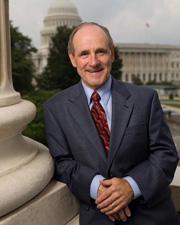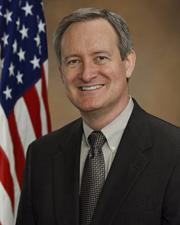0
0
0
Don’t Develop Obstructive Infrastructure on our Terrain Act
12/15/2023, 4:09 PM
Summary of Bill S 3122
Bill 118 s 3122, also known as the Don’t Develop Obstructive Infrastructure on our Terrain Act, is a piece of legislation currently being considered by the US Congress. The main purpose of this bill is to prevent the construction of infrastructure projects that could obstruct or disrupt the natural terrain of the United States.
The bill specifically targets projects such as pipelines, highways, and power lines that could potentially harm the environment or disrupt the natural landscape. It aims to protect important natural resources, such as forests, wetlands, and wildlife habitats, from being damaged by large-scale development projects.
If passed, the Don’t Develop Obstructive Infrastructure on our Terrain Act would require developers to conduct thorough environmental impact assessments before beginning any new infrastructure projects. This would help ensure that any potential negative effects on the environment are carefully considered and mitigated. Additionally, the bill includes provisions for increased oversight and regulation of infrastructure projects to ensure that they comply with environmental laws and regulations. It also includes measures to hold developers accountable for any damage caused to the natural terrain during the construction process. Overall, the Don’t Develop Obstructive Infrastructure on our Terrain Act is aimed at promoting responsible and sustainable development practices that prioritize the protection of the environment and natural resources. It represents a step towards ensuring that future infrastructure projects in the United States are carried out in a way that minimizes harm to the natural landscape.
The bill specifically targets projects such as pipelines, highways, and power lines that could potentially harm the environment or disrupt the natural landscape. It aims to protect important natural resources, such as forests, wetlands, and wildlife habitats, from being damaged by large-scale development projects.
If passed, the Don’t Develop Obstructive Infrastructure on our Terrain Act would require developers to conduct thorough environmental impact assessments before beginning any new infrastructure projects. This would help ensure that any potential negative effects on the environment are carefully considered and mitigated. Additionally, the bill includes provisions for increased oversight and regulation of infrastructure projects to ensure that they comply with environmental laws and regulations. It also includes measures to hold developers accountable for any damage caused to the natural terrain during the construction process. Overall, the Don’t Develop Obstructive Infrastructure on our Terrain Act is aimed at promoting responsible and sustainable development practices that prioritize the protection of the environment and natural resources. It represents a step towards ensuring that future infrastructure projects in the United States are carried out in a way that minimizes harm to the natural landscape.
Read the Full Bill
Current Status of Bill S 3122
Bill S 3122 is currently in the status of Bill Introduced since October 25, 2023. Bill S 3122 was introduced during Congress 118 and was introduced to the Senate on October 25, 2023. Bill S 3122's most recent activity was Read twice and referred to the Committee on Energy and Natural Resources. as of October 25, 2023
Bipartisan Support of Bill S 3122
Total Number of Sponsors
1Democrat Sponsors
0Republican Sponsors
1Unaffiliated Sponsors
0Total Number of Cosponsors
2Democrat Cosponsors
0Republican Cosponsors
2Unaffiliated Cosponsors
0Policy Area and Potential Impact of Bill S 3122
Primary Policy Focus
EnergyAlternate Title(s) of Bill S 3122
Don’t Develop Obstructive Infrastructure on our Terrain Act
Don’t Develop Obstructive Infrastructure on our Terrain Act
A bill to amend the Federal Land Policy and Management Act of 1976 to provide for the denial of certain applications for solar or wind energy development projects right-of-way applications.
Comments
Sponsors and Cosponsors of S 3122
Latest Bills
Providing amounts for the expenses of the Committee on Ethics in the One Hundred Nineteenth Congress.
Bill HRES 131December 12, 2025
Providing for congressional disapproval under chapter 8 of title 5, United States Code, of the rule submitted by the Bureau of Land Management relating to "Central Yukon Record of Decision and Approved Resource Management Plan".
Bill HJRES 106December 12, 2025
Expressing the sense of the House of Representatives in condemning the Government of the People's Republic of China for its harassment and efforts to intimidate American citizens and other individuals on United States soil with the goal of suppressing speech and narratives the People's Republic of China finds unwelcome.
Bill HRES 130December 12, 2025
Providing for congressional disapproval under chapter 8 of title 5, United States Code, of the rule submitted by the Bureau of Land Management relating to "North Dakota Field Office Record of Decision and Approved Resource Management Plan".
Bill HJRES 105December 12, 2025
Providing for congressional disapproval under chapter 8 of title 5, United States Code, of the rule submitted by the Bureau of Land Management relating to "Miles City Field Office Record of Decision and Approved Resource Management Plan Amendment".
Bill HJRES 104December 12, 2025
Providing amounts for the expenses of the Select Committee on the Strategic Competition Between the United States and the Chinese Communist Party in the One Hundred Nineteenth Congress.
Bill HRES 104December 12, 2025
Critical Access for Veterans Care Act
Bill S 1868December 12, 2025
OATH Act of 2025
Bill S 1665December 12, 2025
A bill to extend the authority for modifications to the Second Division Memorial in the District of Columbia.
Bill S 1353December 12, 2025
Saving Our Veterans Lives Act of 2025
Bill S 926December 12, 2025
Don’t DO IT Act
Bill HR 6064February 5, 2024

